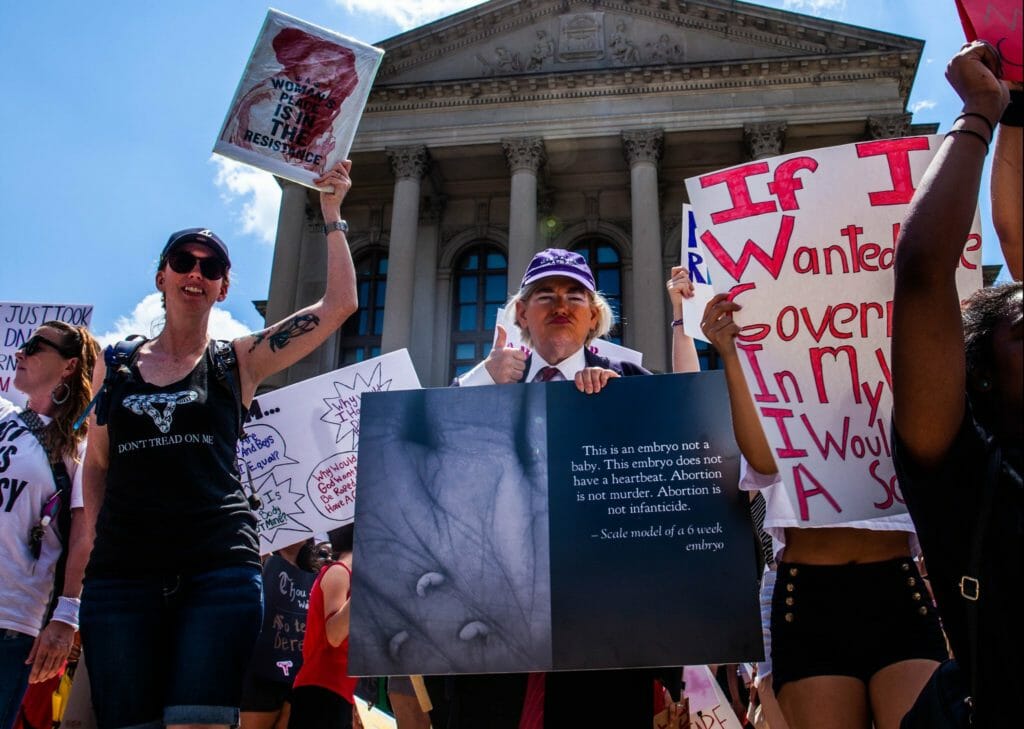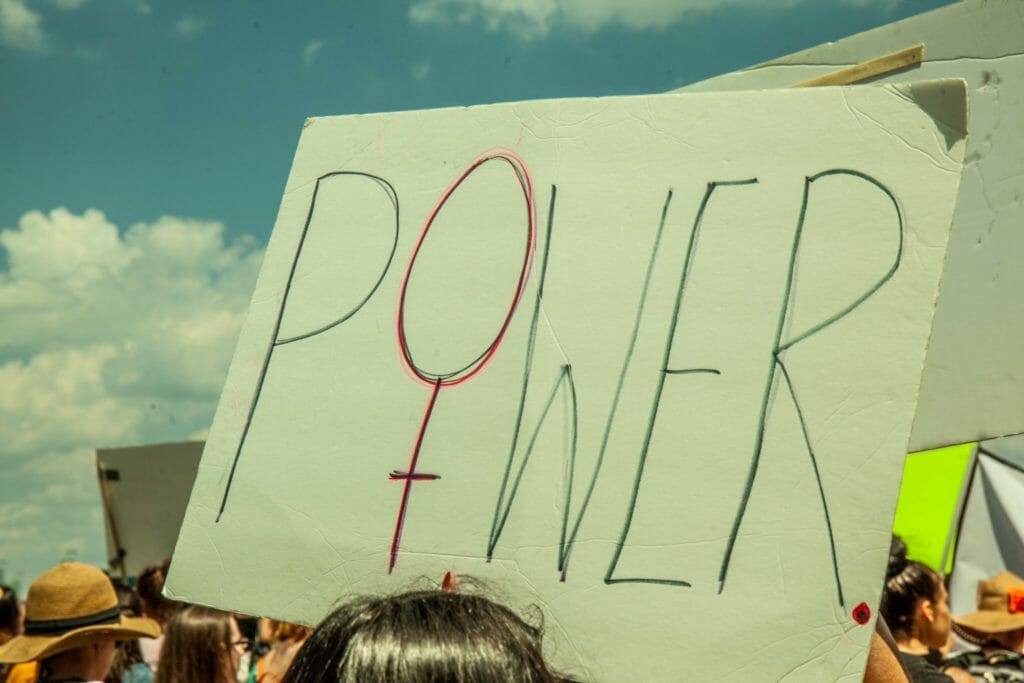GWINNETT COUNTY — The 19th Amendment is often framed as a historic relic that granted women the right to vote. However, that was not the case for all women. For women of color, the right to vote came decades later.
For many Asian American women, they were often denied citizenship by the federal government which left them without voting power. It was only in 1952 under the McCarran-Walter Act that Asian Americans were granted the right to become citizens and vote. The Voting Rights Act of 1965 furthered accessibility to voting, particularly increasing accessibility for Asian Americans with language barriers. However, decades later, voter suppression efforts in Georgia still uniquely impact Asian Americans, leaving many disenfranchised.
Asian Americans rally for turnout in 2020
In 2020, Asian Americans mobilized and turned out in record numbers, largely due to the work of organizations such as Asian Americans Advancing Justice. There was an influx of first-time Asian voters and increased political contact from partisan organizations, candidates and community organizations. In Georgia, one in five AAPI voters were first-time voters. In Georgia’s 7th district, which includes Gwinnett County, two out of five AAPI voters were first-time voters. Additionally, Asian Americans tended to support Democratic candidates in the 2020 election, voting for Biden and Ossoff over their Republican opponents by a significant margin and indicating support for progressive causes, according to the AAPI Fund.
Not only have Asian Americans leaned Democrat within Georgia, but they have also played a pivotal role in Georgia “going blue” this past election cycle. In both outreach and mobilization, Asian Americans exceeded national averages and turned out in record numbers. Yet, the ongoing efforts to further voter suppression threaten the cornerstone of advocacy and mobilization that has promoted voter equity.
Role of SB 202 and voter suppression tactics
Provisions in SB 202 decreased voter accessibility in counties with higher AAPI populations such as Gwinnett County, Fulton County and Dekalb County. For instance, the restrictions on absentee ballots included a limit on the number of drop boxes allowed per county and limits on absentee ballots, many Asian Americans’ preferred method of voting. With the implementation of SB 202, the number of absentee ballot drop boxes in Gwinnett County will decrease from 24 to five.
Gwinnett County contains the highest AAPI population in the state, with 12% of AAPIs in the county. In Georgia as a whole, Asian Americans make up 4.7% of the state’s electorate. With the decrease in voter accessibility through mail-in ballots and drop boxes, Asian Americans are disproportionately impacted through the added barrier of language access.
Eighty percent of Asian Americans in Georgia speak a language other than English at home, with 43% of those speaking English less than “very well.” Additionally, the majority of Asian Americans voted by mail during the 2020 general elections. As Phi Nyugen, the Litigation Director for Asian Americans Advancing Justice – Atlanta stated, “these deliberate barriers will disproportionately harm Asian American voters, many of whom already face barriers due to limited English proficiency and dearth of translated voting materials.”
SB 202 is not the first move that significantly impacted Asian Americans. In 2018, 54,000 applications were thrown out due to an exact match process, 70% of which were people of color, which meant that applications could be thrown out for a minute detail such as a hyphen or a typo. Racial justice advocates have noted that Asian Americans as well as other people of color experience greater disparities since their names often do not fit the hegemonic eurocentric conventions of the U.S. For instance, Asian American names might be inverted or poll workers might assume that parts of their last name are a middle name, leading to errors under the exact match process.
Implications for Asian American voting power
The national fight over the For the People Act of 2021 accentuates the relevance of voting rights in the political sphere. Historically, Asian Americans have been invisibilized through the model minority myth, leading to a lack of voter engagement and accessibility. In fact, in 2016, 74% of Native Hawaiians and Pacific Islanders and 71% of Asian Americans received no contact about the election, compared to 56% of white individuals.
While voter contact has increased in recent years, as a constituency, Asian Americans still receive little voter contact. In 2018, 50% of Asian Americans received no contact or were unsure if they received contact from the Democratic Party, with 60% of Asian Americans saying the same about the Republican Party. Looking forward to the 2022 election, SB 202 proves as a threat to the rise in Asian American mobilization and advocacy.




